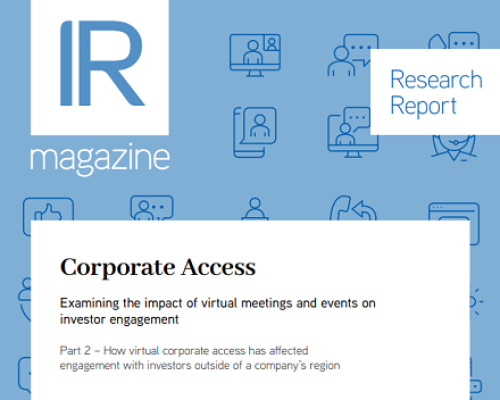– Invesco launched ESG versions of one of the world’s largest ETFs, reported the Financial Times (paywall). The investment firm created ESG iterations for European and US investors in the QQQ ETF, which tracks the Nasdaq 100. The article noted that tech giants such as Tesla, Facebook and Amazon will have lower weights in the new ESG ETFs than they do in the traditional market-cap weighted version.
– CNBC reported that business groups are urging the White House to delay President Joe Biden’s Covid-19 vaccine mandate for companies until after the holiday season, fearing it could cause an exodus of employees. Officials from the Office of Management and Budget have held dozens of meetings with labor unions, industry lobbyists and private individuals as the administration conducts its final review of the mandate.
– The Guardian reported that, according to a new poll, most Americans want to see oil and gas companies held to account for lying about the climate crisis and contributing to global warming. The poll shows that the US remains sharply divided over the causes of the climate crisis following the fossil fuel industry’s efforts to downplay and deny climate science. That division falls largely along political lines, with Democrats and Republicans at odds over the source of climate disinformation.
– The Wall Street Journal reported that, according to a report from the United Nations, the world’s emissions reductions plans would allow far more global warming than is targeted in the Paris climate accord, and some of the biggest emitters such as the US are not on track to hit their pollution targets. The UN report analyzes all plans submitted under the Paris accord as of September 30, and those – such as China’s – that haven’t been submitted. It finds the measures detailed in those plans up to 2030 would still leave the world 2.7°C warmer by the end of the century.
– S&P denied allegations that companies can buy inclusion into indexes, according to Axios. Academics spent two years analyzing additions to the S&P 500 and how they related to published inclusion criteria. ‘They found that when a firm purchases a credit rating from S&P (but not when it purchases a credit rating from rival Moody’s), its chances of being added to the S&P 500 are higher,’ noted the Axios article. In response, S&P said S&P Dow Jones Indices and S&P Global Ratings ‘are separate businesses with policies and procedures to ensure they are operated independently of one another’.
– JPMorgan Chase said it has already committed $13 bn of the $30 bn in lending and spending it pledged last year for improving racial equity, the WSJ reported. In a progress report, the bank said it had issued $6 bn in loans that kept open affordable housing and rental units across the country and issued $1 bn in loans to build more. It said another $4 bn went into refinancing 16,000 mortgages for black and Latino borrowers.
– Facebook undertook a major corporate rebrand and the business will now be known as Meta, reported the BBC. The individual businesses owned by the company, such as social networks Facebook and Instagram, will retain their names. The company said the new name will better explain what it does now and its future plans, which include building a ‘metaverse’ where people can interact in a virtual world.
– According to the WSJ, Royal Dutch Shell CEO Ben van Beurden defended the energy company’s business model after activist investor Third Point called for the break-up of the company to improve its environmental and financial performance. Van Beurden said the needs of Shell’s customers and the company’s efforts to pivot away from fossil fuels were better served by keeping its range of assets and businesses. In particular, he said the company’s legacy oil and gas assets were needed to fund its investments in lower-carbon energy.










